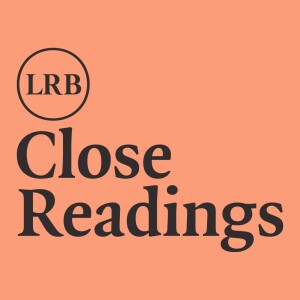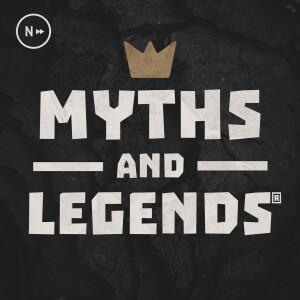

Episode List

Novel Approaches: ‘Kidnapped’ by Robert Louis Stevenson
Robert Louis Stevenson’s Kidnapped began life serialised in a children’s magazine, but its sophistication and depth won the lifelong admiration of Henry James. Set in the aftermath of the 1745 Jacobite rising, Kidnapped follows young lowlander David Balfour’s flight across the Highlands with the rebel Alan Breck Stewart. In Stevenson’s hands, a straightforward adventure story becomes a vivid exploration of friendship, the body, and social and political division. In this episode of Novel Approaches, Clare Bucknell is joined by Stevenson fans Andrew O’Hagan and Tom Crewe. They explore Stevenson’s startlingly modern handling of perspective and pacing, his approach to the art of fiction, and the value of being ‘betwixt and between’. Non-subscribers will only hear an extract from this episode. To listen in full, and to all our other Close Readings series, sign up: Directly in Apple Podcasts: https://lrb.me/applecrna In other podcast apps: https://lrb.me/closereadingsna Further reading in the LRB: Andrew O’Hagan on Stevenson’s life:https://www.lrb.co.uk/the-paper/v27/n04/andrew-o-hagan/in-his-hot-head ...his circle:https://www.lrb.co.uk/the-paper/v42/n10/andrew-o-hagan/bournemouth ...and his home in Edinburgh:https://www.lrb.co.uk/the-paper/v46/n01/andrew-o-hagan/diary P.N. Furbank on R.L.S.’s letters:https://www.lrb.co.uk/the-paper/v16/n16/p.n.-furbank/what-sort-of-man Matthew Bevis on Treasure Island:https://www.lrb.co.uk/the-paper/v34/n20/matthew-bevis/kids-gone-rotten Next episode: The Mayor of Casterbridge by Thomas Hardy.

Love and Death: Elegies for Poets by Auden, Arnold and Schuyler
When poets elegise other poets, the results are often more about self-scrutiny and analysis of the nature of poetry than about grief. Matthew Arnold commented on his elegy for Arthur Hugh Clough, ‘Thyrsis’ (1865), that ‘one has the feeling that not enough is said about Clough in it.’ In his elegy for W.B. Yeats (1939), Auden insists that ‘poetry makes nothing happen’. Both poems resist idealisation of their subject and use the elegy’s pastoral tradition as a way of distancing themselves from the poetic sensibility of their subject. In this episode, Seamus and Mark discuss the ways in which Arnold and Auden’s visions of what a poet should be aren’t so far apart, and finish with a look at James Schuyler’s similarly unromantic elegy for Auden, in which he finds ‘so little to say’. Non-subscribers will only hear an extract from this episode. To listen to the full episode, and to all our other Close Readings series, subscribe: Directly in Apple Podcasts: https://lrb.me/applecrld In other podcast apps: https://lrb.me/closereadingsld Arnold's 'Thyrsis': https://lrb.me/ldep11thyrsis Auden's 'In Memory of W.B. Yeats': https://lrb.me/ldep11yeats More in the LRB: Seamus Perry on Auden: https://lrb.me/ldep11auden Stefan Collini on Arnold: https://lrb.me/ldep11arnold

Fiction and the Fantastic: J.G. Ballard and Angela Carter
J.G. Ballard and Angela Carter were friends and co-conspirators in their witness to the postwar world and the liberation movements of the 1960s. Both were scathing in their antipathy towards the polite novels of manners and empire that still dominated English readers’ appreciation and expectations. Pioneers in the liminal spaces between literary and ‘genre’ fiction, and science fiction in particular, both of them are haunted by the visions of Swift, Shelley, Kafka and Borges. Ballard’s ‘The Atrocity Exhibition’ and ’The Passion of New Eve‘, considered together here along with Ballard’s short story ’The Drowned Giant‘, are vivid, fearless, still shocking novels of ideas – if ‘The Atrocity Exhibition’ can be described as a novel at all. Marina and Chloe discuss that question as they consider Ballard’s catalogue of contemporary violence and pop culture transgression. Then they turn to Carter’s own gleeful transgressions, born out of the ferment of 1970s cultural theory, which she explores and interrogates with inimitable style. But do the excesses of these works still speak to the present, and does their lack of restraint risk collapsing the whole category of the fantastic? Non-subscribers will only hear an extract from this episode. To listen to the full episode, and all our other Close Readings series, subscribe: Directly in Apple Podcasts: https://lrb.me/applecrff In other podcast apps: https://lrb.me/closereadingsff Further reading in the LRB: Susannah Clapp on Angela Carter: https://www.lrb.co.uk/the-paper/v14/n05/susannah-clapp/diary Edmund Gordon on J.G. Ballard: https://www.lrb.co.uk/the-paper/v46/n10/edmund-gordon/his-galactic-centrifuge Watch ‘If God is a snail...’, a film about Carter’s food writing for the LRB: https://www.youtube.com/watch?v=yxqr5O2JFvE Listen to Edmund Gordon discuss Ballard on the LRB Podcast: https://www.lrb.co.uk/podcasts-and-videos/podcasts/the-lrb-podcast/on-j.g.-ballard Next episode: Ursula K. Le Guin.

Conversations in Philosophy: 'The Fall' by Albert Camus
Never trust anyone who tries to be ethically pure. This is the message of Albert Camus’s short novel La Chute (The Fall), in which a retired French lawyer tells a stranger in a bar in Amsterdam about a series of incidents that led to a profound personal crisis. The self-described ‘judge-penitent’ had once thought himself to be morally irreproachable, but an encounter with a woman on a bridge and a mysterious laugh left him tormented by a sense of hypocrisy. In this episode, Jonathan and James follow Camus’s slippery hero as he tries and fails to undergo a moral revolution, and look at the ways in which the novel’s lightness of style allows for twisted inversions of conventional morality. They also consider the similarities between Camus’s novels and those of Simone de Beauvoir, and his fractious relationship with Jean-Paul Sartre. Non-subscribers will only hear an extract from this episode. To listen to the full episode, and to all our other Close Readings series, subscribe: Directly in Apple Podcasts: https://lrb.me/applecrcip In other podcast apps: https://lrb.me/closereadingscip Further reading in the LRB: Jeremy Harding: Algeria's Camus: https://lrb.me/cip11camus1 Jacqueline Rose: 'The Plague': https://lrb.me/cip11camus3 Adam Shatz: Camus in the New World: https://lrb.me/cip11camus2 Audiobooks from the LRB Including Jonathan Rée's 'Becoming a Philosopher: Spinoza to Sartre': https://lrb.me/audiobookscip

Novel Approaches: ‘The Portrait of a Lady’ by Henry James
In The Portrait of a Lady, Henry James borrows from Eliot, Austen, folktales and potboilers, but ‘the thing that he took from nowhere was Isabel Archer’. James transformed the 19th-century novel through his evocation of Isabel, a woman who wants and suffers in a profoundly new (and American) way. Deborah Friedell and Colm Toíbín join Tom to discuss the novel that established Henry James as ‘the Master’. They dissect James’s and his characters’ complicated motivations, the significance of his 1905-6 revisions, and the ways in which a ‘primitive plot’ irrupts in a painstakingly subtle and stylish novel. Non-subscribers will only hear an extract from this episode. To listen in full, and to all our other Close Readings series, sign up: Directly in Apple Podcasts: https://lrb.me/applecrna In other podcast apps: https://lrb.me/closereadingsna Further reading in the LRB: Colm Toíbín on Henry James: https://www.lrb.co.uk/the-paper/v30/n01/colm-toibin/a-man-with-my-trouble Ruth Bernard Yeazell on Henry James’s life and notebooks: https://www.lrb.co.uk/the-paper/v10/n01/ruth-bernard-yeazell/the-henry-james-show James Wood on The Portrait of a Lady: https://www.lrb.co.uk/the-paper/v34/n19/james-wood/perfuming-the-money-issue Next time on Novel Approaches: 'Kidnapped!' by Robert Louis Stevenson. LRB Audiobooks Discover audiobooks from the LRB: https://lrb.me/audiobooksna
Create Your Podcast In Minutes
- Full-featured podcast site
- Unlimited storage and bandwidth
- Comprehensive podcast stats
- Distribute to Apple Podcasts, Spotify, and more
- Make money with your podcast












